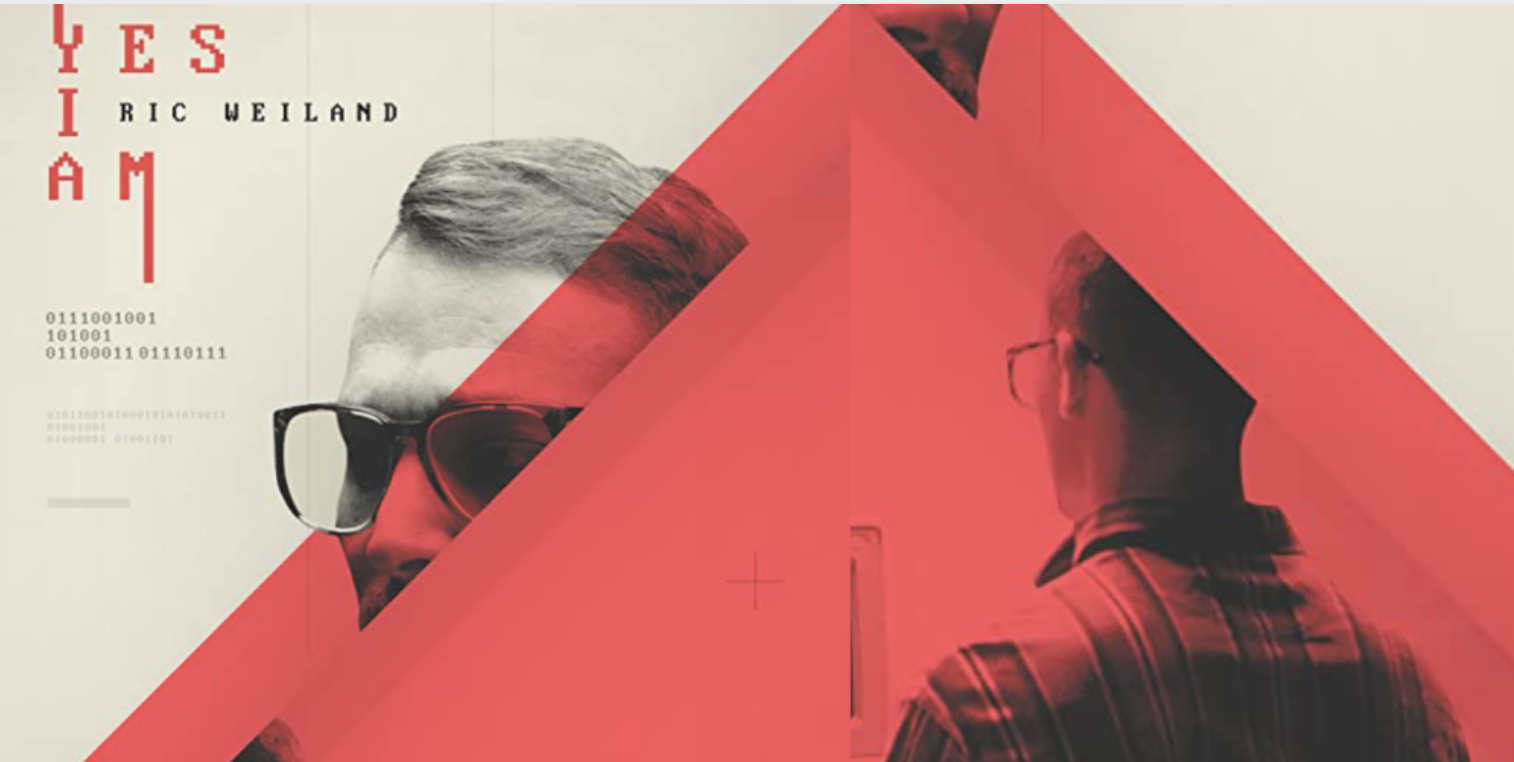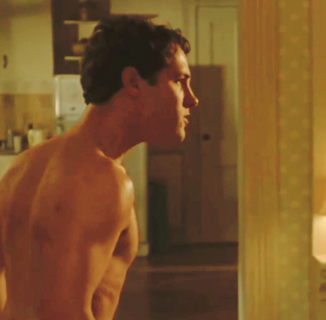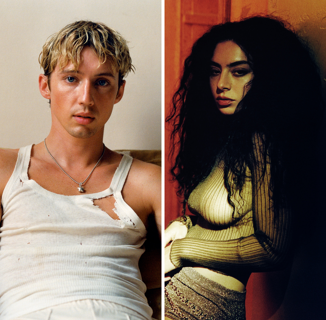If you’ve never heard of Ric Weiland, the pioneering software engineer who worked along Bill Gates to establish Microsoft in the 1970s, don’t feel bad. He didn’t want you to. Despite being an out-gay programmer and substantial donor to queer causes throughout his life, Weiland didn’t want to be known. When he died, he didn’t get an obituary in the New York Times. And for a long time, if he was mentioned at all, it was in passing.
That all changes this year, in large part due to filmmaker Aaron Bear’s documentary “Yes I Am: The Ric Weiland Story.” Weiland worked under the radar for decades, first as a programmer and engineer, and later as a donor who, over the course of his life, gave millions of dollars to HIV/AIDS research and community support. When he committed suicide in 2006, he left $65 million to 10 LGBTQ+ nonprofits. But he didn’t want to be celebrated when he was alive.
Bear’s film, featuring narration and voice work by Zachary Quinto and interviews with Weiland’s close colleague Bill Gates, gives us a chance to know the man who, by all accounts, was content to radically change the world and retreat into the shadows. INTO spoke to Bear about Weiland’s legacy, and the complications of telling Weiland’s fascinating story.
INTO: So how did you get the idea for this story? Did you know about Ric before?
Aaron Bear: I was approached by Michael Failla who is in the film — Ric’s one of his best friends — after my last film, “Finding Kim,” at the Seattle International Film Fest. And, you know, you go to a film festival and you’re having all these five-minute, 30-second conversations and he’s like, ‘Oh, I’ll email you, I have this idea about a friend of mine,’ and so he did. And the more I got to know Ric, the more I realized, ‘how does nobody know this person who has affected pretty much every queer person that’s out there, their lives, and he’s done significant change.’ So, he approached me to do it. That was August of 2016, and it was truly kind of like cracking open a cold case. Ric didn’t want to be known.
I scrounged through the Microsoft archive, the Stanford archive, where his materials were donated to, and there’s just very few, like, ephemera about him that actually exists. So that was one of the challenges. And also, trying to tell a story about somebody who isn’t here to tell their story, and doing right by him and by all of his friends and family. No one knew except the people that were close to him and, you know, I’m so grateful that Bill Gates is in the film and was able to tell his story. I almost got to interview Paul Allen, but we had a date set, and he died two weeks before that. But Ric’s story really does stand out.
It was truly kind of like cracking open a cold case. Ric didn’t want to be known.
He was never in it for himself, which I think speaks to a lot of his philanthropic work, and as well as his just genuine doing this, of like, wanting to do better in the world.
Ric was out in the way that you could be out. Like, to the extent you could be out in the world of tech. That must have been an odd space for him to occupy.
Thank you for noticing that, because that was something that was also a challenge, in identifying who he was as a person, because, here’s somebody who has, on paper, has everything. You know, a bit of fame, but also suffered greatly. But also out at a very early moment, just being out and being proud about it…
Queer identity, you know, it can consume you. With Ric, it wasn’t his identity that consumed him — well, I guess, I mean, in a way his identity, but on a different spectrum of like: ‘Who am I, what am I doing for the world, who are my friends, where do I want to be in life?’ And he said his being out only helped his cause and the friends that he kept. If you look him up, he’s like the 11th largest philanthropist, I think, in the United States. For that to be a queer person, and giving money to these organizations who are now these huge organizations starting out, you know, like GLAAD and ACT UP, I mean, Ric was the one donating to their causes. I feel like, over the years, I’ve gotten this feeling of attachment and a feeling of protectiveness, but also I’ve never met this person. Also being a filmmaker, it’s been my own experience as well. And I’m forever grateful for Ric.
Queer identity, you know, it can consume you. With Ric, it wasn’t his identity that consumed him.
Yeah, it is really insane just to discover, and even in the research I was doing, I was like, ‘this guy left a lot of money and really didn’t care if people knew it.’
These are things that I thought about along the way, when I was making the film. Trying to answer these questions. I’m making a film about someone who isn’t here to tell their own version of the story, so it’d kind of be a little trite to me to try to answer those questions, and I think that there’s probably a mix of everything. I really think that at the end of the day, his not wanting to be recognized was more to do with himself. You know, I read his journals dating back to 1975, and there was this overwhelming sense of not feeling good enough or, like, not being the best version of himself for other people and also for himself. And it was almost like his philanthropy was, not secondary, but the thing is that he didn’t even really have to think about it. It was so obvious to him. And not wanting the recognition either speaks to his own sense of self and personality in that, you know, most people if they’re giving away hundreds of millions of dollars, they want their name on something, and Ric wanted the opposite. It’s weird. I wish I could answer that question, but I just don’t have the answer.
I read his journals dating back to 1975, and there was this overwhelming sense of not feeling good enough or, like, not being the best version of himself for other people and also for himself.
HG: I’m wondering too, like, when you were looking to find people to interview or speak, were you able to find people in tech who could be like, ‘I know that he, like, created this legacy and I feel connected to that,’ or were people just unaware that he existed?
AB: Yeah, I would say people didn’t know. You know, you start making a documentary and there’s a long run of just information gathering, and what’s important to this person was friends, you know, drama, stuff like that, things that happen in someone’s life. And then I sort of went down this rabbit hole of talking to a lot of Microsoft people that sort of knew him, but not really. And it was always just very surface. It never really cracked. There wasn’t a lot of information there, and again, it speaks to Ric’s, him not, at least in that environment, not completely showing himself or not allowing himself to fully connect with people. But yeah, I did talk to quite a few people in tech that sort of knew of him. But I mainly just read the Seattle Times obituary, and that was it. They did write about him after he died about basically how he changed the world.
Same! I was like, ‘Oh, the Seattle Times just seems to be the only paper that actually wrote an obituary for Ric.’
Maybe I’m reaching here, but does that say something about, you know, sexuality, or how he identified. And it’s like this person who, I mean, is, you know, he is a gay man and he had HIV and it’s like, say it was somebody else. Say it was, you know, a straight white man, who did all these things and changed the world. I think the lens probably would be a little more dialed in and blown up, and so, it’s just something to think about. I’ve done a handful of interviews and I get asked these questions, like, ‘Do you think Ric was trying to do X, Y and Z?’ And I really think at the end of the day, he really just wanted to make the world a better place. And even though he couldn’t do that for himself in a way, he was able to help and help manifest some sort of future for younger people. Younger queer people.
It’s interesting because one of the most fascinating things in the new Sarah Schulman book is about how like, today we have this idea of the New York Times as being like the paper of record, but back then, during ACT-UP, they called it the “New York Crimes” because their coverage of AIDS was like inaccurate and it was under-covered. And, yeah, and that makes me think too, like, ‘Oh, probably at that time, yeah, they would have seen this story as like, oh, another person with AIDS died, whatever.’
Ric had HIV, but he survived it, and he lived until 2006. I think that kind of thing says a lot about news, and also, who’s covering it. Like, who has an investment in the stories that they’re telling? Even when I started making this, I questioned myself, saying, ‘Am I the right person to tell this story? Can I tell this in a correct way that will serve everyone across the board?’ And, you know, the more I dove into Ric’s life, the more I kind of fell in love with him. And also, there’s no denying how he’s affected my own life, and you know, changed it. I’ve worked for Microsoft before and I’ve worked for Starbucks and I’ve worked for all these corporations. Yeah, you can’t help but think that his philanthropy has trickled out into the world, and only benefited people like us. I mean, really.
And still continues to benefit us. It’s pretty amazing. And the fact that he left journals, too — because I feel like as someone who makes documentaries, it’s like, you know, either somebody could leave detailed notes for every part of their life or you could get nothing! It’s a gamble.
AB: The journals were, you know — I would love to say that I was this genius-level filmmaker, but I stumbled upon them. A lot of his stuff was donated to Stanford’s archives because he has this connection to Stanford, went to Stanford. And so I got to go down and I got to sort of sift through some boxes, and there were 60 boxes, but I only could select, I think, six at a time, and we had a limited amount of time, but then I selected this box with the journals.
Stanford digitized all the journals. He kept a daily journal since 1975 or ‘76. So I read them, and then I also had my producers read them. I had family friends who were close to me go through and — you know, because, you know when you’re making a film, especially a documentary like this, you need other eyes. You need other opinions and voices, and the people who helped me read these journals — because it was, it was a task. And you’re reading someone’s handwriting, you know? And going back through and rereading and rereading, and you’re also reading it from a computer. So it’s, you know, instead of a book. So, the journals were sort of the key to the overall structure of the film, and then that informed me of like how, like, sort of the beginning, middle and end, and at the end of the day, like, I’m still making a movie and I’m still trying to tell this person’s life story in an hour. Like, I could have, you know, did the four-hour version, right?
The more I dove into Ric’s life, the more I kind of fell in love with him.
And also, you know, the fact that he took his own life. And there’s 100 different ways you could do this movie, but I think, you know, covering his early life into educating people about AIDS and HIV during this time period which he affected very greatly, and then diving into the philanthropy — I’m incredibly proud of the film that I made. And, you know, you get 100 people telling you, like, ‘You should’ve done it this way, you should’ve done it this way.’
Rude!
Yeah, at the end of the day, it’s, you know, when you’re making a film, it’s just, you know, you watch it a billion times and then you kind of lose a sense of, ‘Does this suck? Am I telling the right story?’ Like, I think at the end of the day, I always come from a place of trying to make a film that I would want to watch, and also educate people. And also inspire people! And I think I checked all those boxes. I’m still here.
It looks amazing. It looks like a tearjerker.
Yeah, I still cry at the end. Even though I made it and I’ve seen it, you know, 100 times as I go through the editing process, I still get to the end — I identify with it as a queer person and then as a gay man. This person changed my life, and there’s no denying that. And like, it is emotional, and it is, you know, it’s sad that, you know, it ended the way that it did. However, his legacy, I think, like Mike Schafer in the film, he says, t lives on and on and on and on forever. And Ric set it up that way. I mean, he’s a hero. I mean, he’s a fucking hero to me. So it’s been an interesting part of my own life, of making this film and, you know, wanting to see it, even just out there in the world for a second. And I’m so grateful to Ric and to everyone that’s been involved. ♦
“Yes I Am” is streaming at the Provincetown Film Festival now.
Help make sure LGBTQ+ stories are being told...
We can't rely on mainstream media to tell our stories. That's why we don't lock our articles behind a paywall. Will you support our mission with a contribution today?
Cancel anytime · Proudly LGBTQ+ owned and operated
Read More in Entertainment
The Latest on INTO
Subscribe to get a twice-weekly dose of queer news, updates, and insights from the INTO team.
in Your Inbox















